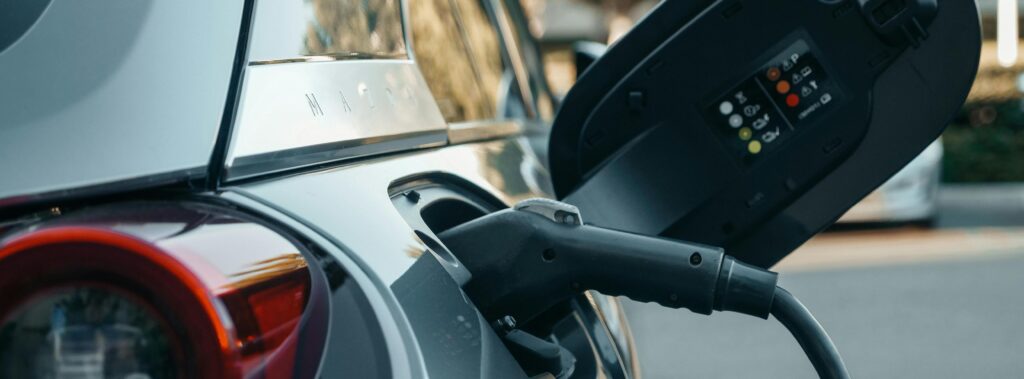Introduction:
Hybrid cars represent a significant shift towards more environmentally friendly transportation options. With their unique combination of traditional combustion engines and electric motors, hybrid vehicles offer improved fuel efficiency and reduced emissions. However, to ensure optimal performance and longevity, proper maintenance is crucial. In this guide, we’ll delve into the essential tips and best practices for maintaining your hybrid car, covering everything from routine upkeep to troubleshooting common issues.

1. Understanding Hybrid Technology
Hybrid vehicles operate using a combination of gasoline engines and electric motors, which work together to optimize fuel efficiency and reduce emissions. Understanding how these components interact is essential for effective maintenance.
1.1. Hybrid Powertrain Components
Explore the intricate components of hybrid powertrains, including the battery pack, electric motor, regenerative braking system, and onboard computer.
1.2. How Hybrid Cars Work
Delve into the mechanics behind hybrid cars, including series and parallel hybrid configurations, and the role of regenerative braking in harnessing energy.
1.3. Benefits of Hybrid Technology
Highlight the advantages of hybrid vehicles, such as lower fuel costs, reduced emissions, and eligibility for incentives and tax credits.
2. Essential Maintenance Practices
Regular maintenance is key to ensuring the longevity and performance of your hybrid car. From routine checks to specialized servicing, here’s what you need to know.
2.1. Oil Changes and Fluid Checks
Detail the importance of regular oil changes and fluid inspections, emphasizing the impact on engine efficiency and component longevity.
2.2. Battery Health Monitoring
Discuss methods for monitoring the health of your hybrid battery, including diagnostic tools and performance indicators.
2.3. Tire Maintenance

Explore tire care tips specific to hybrid vehicles, such as maintaining proper inflation levels and monitoring wear patterns for improved fuel efficiency.
3. Maximizing Fuel Efficiency
One of the primary benefits of hybrid cars is their fuel efficiency. Learn how to optimize your driving habits and vehicle settings to maximize mileage.
3.1. Eco-Driving Techniques
Provide practical tips for eco-conscious driving, such as smooth acceleration, coasting, and minimizing idling, to enhance fuel efficiency.
3.2. Utilizing Hybrid Drive Modes
Explain the various drive modes available in hybrid cars, such as EV mode and Eco mode, and how they impact fuel consumption.
3.3. Hybrid Car Maintenance Checklist
Offer a comprehensive checklist for maintaining hybrid cars, covering regular inspections, fluid checks, and battery health monitoring.
4. Common Hybrid Car Issues and Solutions
Despite their efficiency, hybrid cars may encounter unique issues. Learn how to identify common problems and implement effective solutions.
4.1. Battery Degradation

Discuss the factors contributing to battery degradation in hybrid cars and strategies for mitigating its effects, such as deep cycling and temperature management.
4.2. Regenerative Braking Malfunctions
Examine potential issues with regenerative braking systems, such as sensor failures or brake pad wear, and how to address them through diagnostics and repairs.
4.3. Engine Performance Issues
Explore common engine-related issues in hybrid cars, such as misfires or stalling, and troubleshooting steps for identifying and resolving these issues.
5. Frequently Asked Questions (FAQs)

Address common queries and concerns related to hybrid car maintenance to provide readers with comprehensive insights and solutions.
How often should I replace the hybrid battery?
The lifespan of a hybrid battery varies depending on factors such as driving habits and environmental conditions. On average, hybrid batteries may last anywhere from 8 to 10 years.
Can I perform maintenance tasks on my hybrid car myself, or should I seek professional assistance?
While some basic maintenance tasks can be performed by owners, such as fluid checks and tire rotations, complex issues and specialized servicing should be handled by qualified technicians familiar with hybrid systems.
(Maintaining Your Hybrid Car: The Ultimate Guide)
Are hybrid cars more expensive to maintain compared to traditional gasoline vehicles?
While initial costs may be higher due to specialized components, hybrid cars typically require less frequent maintenance and have lower fuel expenses, resulting in comparable long-term maintenance costs.
What steps can I take to prolong the lifespan of my hybrid battery?
To extend the life of your hybrid battery, avoid deep discharges, maintain proper charging habits, and keep the battery cool in hot climates.
How can I improve the fuel efficiency of my hybrid car?
Optimizing your driving habits, keeping your vehicle well-maintained, and utilizing eco-friendly driving modes can all contribute to improved fuel efficiency in hybrid cars.
What should I do if my hybrid car displays warning lights or error codes?
If your hybrid car’s dashboard indicates any warning lights or error codes, it’s essential to consult the owner’s manual or seek professional assistance to diagnose and address the issue promptly.
Conclusion
Maintaining a hybrid car involves a combination of routine upkeep, specialized servicing, and eco-conscious driving habits. By following the tips and best practices outlined in this guide, you can ensure that your hybrid vehicle remains efficient, reliable, and environmentally friendly for years to come.
Read more about Unleash Your Driving Potential: 11 Expert Tips for Mastery